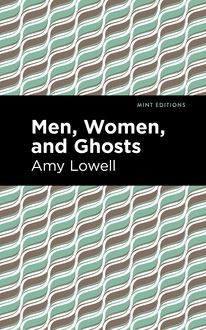-
 Univers
Univers
-
 Ebooks
Ebooks
-
 Livres audio
Livres audio
-
 Presse
Presse
-
 Podcasts
Podcasts
-
 BD
BD
-
 Documents
Documents
-
- Cours
- Révisions
- Ressources pédagogiques
- Sciences de l’éducation
- Manuels scolaires
- Langues
- Travaux de classe
- Annales de BEP
- Etudes supérieures
- Maternelle et primaire
- Fiches de lecture
- Orientation scolaire
- Méthodologie
- Corrigés de devoir
- Annales d’examens et concours
- Annales du bac
- Annales du brevet
- Rapports de stage
La lecture à portée de main

Vous pourrez modifier la taille du texte de cet ouvrage
Découvre YouScribe en t'inscrivant gratuitement
Je m'inscrisDécouvre YouScribe en t'inscrivant gratuitement
Je m'inscrisEn savoir plus
Vous pourrez modifier la taille du texte de cet ouvrage
En savoir plus

Description
The Western Shore (1925) is a novel by Clarkson Crane. Written while the author was living in a cramped Paris apartment, The Western Shore appeared at an exciting time of literary experimentation and achievement among American expatriates in Europe. Condemned for its realistic portrayal of campus life, featuring homosexual characters and sharp critiques of government and academic institutions, The Western Shore proved a costly gamble for Crane’s literary career. Although he would publish several more novels throughout his lifetime, Crane never achieved the recognition he deserved as a pioneering LGBTQ figure in American literature. Most novels of American college life focus on the nostalgia of the campus experience, the parties, friendships, and romances which accumulate to shape and change young lives, for better and for worse. In The Western Shore, Clarkson Crane refuses to look back on his undergraduate days with rose-tinted glasses, instead presenting a warts-and-all portrait of his diverse cast of characters. Milton Granger comes from a prominent family of intellectuals and academics. Carl Werner, a veteran of the First World War, struggles to obtain health benefits from the government he risked his life to serve. George Towne, a poor student and unrepentant cheater, tries not to flunk out of Berkeley for the third—and likely final—time. Perhaps most interesting of all is the lecturer Burton, an openly gay man who makes an impression on his students—Granger most of all. With a beautifully designed cover and professionally typeset manuscript, this edition of Clarkson Crane’s The Western Shore is a classic work of American literature reimagined for modern readers.
Sujets
Informations
| Publié par | Mint Editions |
| Date de parution | 23 avril 2021 |
| Nombre de lectures | 0 |
| EAN13 | 9781513288581 |
| Langue | English |
Informations légales : prix de location à la page 0,0500€. Cette information est donnée uniquement à titre indicatif conformément à la législation en vigueur.
Extrait
The Western Shore
Clarkson Crane
The Western Shore was first published in 1925.
This edition published by Mint Editions 2021.
ISBN 9781513283562 | E-ISBN 9781513288581
Published by Mint Editions ®
minteditionbooks .com
Publishing Director: Jennifer Newens
Design & Production: Rachel Lopez Metzger
Project Manager: Micaela Clark
Typesetting: Westchester Publishing Services
To F.B. This Volume Is Most Gratefully Dedicated
C ONTENTS E PISODE O NE I. A P AIR OF S HOES II. M ILTON G RANGER III. R ENEWAL IV. I NTERIOR V. T OM G RESHAM VI. I NITIATION VII. T HE U PPER R OOM VIII. C ONVERSATION IX. O RDEAL X. R ETURN E PISODE T WO XI. E THEL D AVIS XII. J IMMIE S COTT XIII. B URTON AND G EORGE XIV. T HE C HANGING H EART XV. M OUNTAIN W ALK XVI. S UCCESSION XVII. C OLLAPSE XVIII. E THEL AND T OM XIX. A N EW A CQUAINTANCE XX. G EORGE T OWNE
EPISODE ONE
I
A P AIR OF S HOES
There were few people on the ferry-boat, only those who were coming late in the morning from homes in Marin County, no early business men or commuters, and George Towne, feeling sleepy, stood almost alone on the forward deck, his blanket roll at his feet, smoking a cigarette made from Durham and brown paper, and watched the white cube of Alcatraz Prison with the blue sky gleaming over and behind, and a gray mist farther away on the horizon. He loathed the bland, cruel walls. A friend of his who resisted the draft two years before was still confined there; George had been to see him in May, before going to the lumber camp in Mendocino County, and had found him resigned and tranquil The old discontent had left Joe Farely’s eyes and voice; folding his arms, he had smiled and quoted the last paragraph of Max Stirner’s The Ego and His Own , the book that used to lie amid scraps of cloth, pins, and thread on the floor of his tailor shop in Lander, Wyoming, before the Vigilance Committee had driven him from town. George muttered the words now, and let the remnant of his cigarette fall to the deck. The somber quiet of the redwood forest, spattered with sunlight here and there, was still in his mind; but a memory rose against it of Joe Farley in his shirt-sleeves near the broad table, a green eye-shade on his forehead, looking up from his work and saying; “Come in, George. Come in, boy.” In those days Joe was the only man to whom he could talk of the books he was reading. He often went to the shop after school: especially in winter he liked to sit on the rickety wooden chair with the round stove drumming and flushing at his elbow, and hear Joe Farley’s voice. “He’s a queer duck,” one of his brothers said. “What the hell do you go there for?” And when Joe Farley disappeared from Lander in July 1917, George’s brother and father tried to make him tell what the tailor had said during those afternoons.
“I’ll have to go and see him next week,” George thought.
“Shine?” exclaimed a Greek boy emerging from the interior of the ferry-boat.
“Shine?”
“No,” answered George, “not me.”
There would be no use having his shoes shined after having worked in them all summer. The soles were worn through: he would have to buy a new pair. He moved toward the rail and pulled his cap down lower onto his brow and stared at the glitter and dance and bobbing of the small waves.
When the boat crept into the slip and the gangplank descended, he walked over it into the gray ferry building, along the arcade, with the sunlight flashing and cars grinding outside, and checked his blanket roll, and came forth onto the pavement among shouting newsboys. The long green cars swung around the circle, halted for a moment, and then streamed away up Market Street one after another. He noticed that the stonework of a new building, which had only been a red skeleton earlier in the year, mounted now to the tenth or eleventh floor. “They sure work fast,” he thought, drawing out his Durham and brown papers; and, standing on the sidewalk before the Ferry Building among hurrying people, a husky blonde youth in a flannel shirt, he rolled another cigarette, and struck a match on a stone column.
“I might as well get a pair of army shoes,” he thought, “They’re cheap and affordable.” Then he strolled west, hands in pockets and shoulders drawn a trifle forward, across the car-tracks to Market Street, and along the north side of Market Street. The stores and people and automobiles were all blatantly new to him, for the monotony of forested hills occupied his mind; and each young woman started a creeping sensation in his entrails. There had been few women in the lumber-camp, just Emily, a frowsy wench from Ukiah, who helped with the laundry, and Mrs. Jackson, the superintendent’s wife. Of course there were two or three prostitutes in town, about eight miles away. Every Saturday night some of the men would visit them; but George had not gone to town all summer. He feared disease, and knew that he would be unable to restrain himself were he to accompany the others and take a drink or two. Accordingly, he had more than a hundred dollars in his pocket with which to enter the university.
He planned to get a job as waiter or dishwasher in a Greek restaurant in Berkeley. It was a long narrow room with a counter on one side rimmed with stools and a dozen tables beneath a mirror along the opposite wall. Steam and clatter issued from the kitchen at the farther end, with now and then a long pounding hiss when water gushed from the faucet into a hot pan. The year before, during the autumn semester of 1918, when the university resembled an armed camp, he had washed dishes from six o’ clock in the evening until one in the morning; some of his friends ate there, and, when he finished, they would all go to his room and play poker until the day arrived, and then sleep into the afternoon. Little time remained for study; George drifted with the crowd, though it occurred to him now and then that he had not come all the way from Wyoming to play poker and wash dishes. At the end of the semester he received his marks and learned that he had “flunked out.” Now in August, 1919, after a spring working in Oakland and a summer in a lumber-camp, he was ready to try again. “I’ll go to the chop-house this evening,” he thought, stretching his body and legs in the fresh sunlight and feeling limber once more after the cramped, long night in the box-car. “I guess Pete will gives me back my old job.”
When he reached Kearny Street, he paused under the clock protruding from the Chronicle Building to watch a girl in a dark suit buy violets from a flower stand on the corner. She pinned them onto her bosom, standing for an instant with chin lowered, and then walked away up Kearny Street, her slender figure very straight and trim and her head lifted. For a while George pondered whether or not to follow her. “They all dress like tarts these days,” he thought, taking a few steps along the pavement where newsboys were waving green afternoon papers. “You can’t tell one from another.” But she was too far away now, nearly out of sight behind people mingling on the sidewalk, and George turned and crossed Kearny and strolled up Market Street, thinking that he would telephone over to Berkeley to see if Dan Wilkens or Herb Storey or Tuppy Smith had returned. It was only the fifth of August and there was more than a week yet before registration. “But they may be there,” he decided; “one of them might come over and we could eat in some Dago joint.”
While he was in a drug-store turning the leaves of a telephone directory, he pulled out his handkerchief. The cloth bore odors of redwood (he had stuffed a sprig of it into his pocket,) which made him see all at once a path leading to the bunk-house, and his own room in the bunk-house, a small, square, unvarnished room with obscene penciling on the walls. “I have not written home for two months,” he thought, “I’ll have to write Emma pretty soon.” There had been a hush over the forest when he last scribbled a letter; the men, newly shaven and fresh after soaping, reading old magazines and talked. He closed the door of the booth and took down the receiver. The high school in Cheyenne where Emma taught English would not open until the first week in September, and Emma was doubtless still in Lander where she had gone for the summer. “I’ll write to the whole family at once,” he thought, putting a dime into the slot. While he stood there waiting for the number to be given him, with the crackling and buzzing of the telephone in his ear, and a faint mint smell of some disinfectant coming from the transmitter, he remembered a letter from his father which he had received in Mendocino County. “Your sister, Emma, is with us,” the old hotel proprietor had written in his wavering scrawl, “and your mother is happy to have her.” There had been three sheets of paper, all of them with a dark picture of the Tower Hotel as a heading, and on the last page his father had said: “Jerry and Art are still in Coblenz. They don’t know when they’ll be sent home.”
No one he knew was in; he wasted thirty cents telephoning; the landlady of the house in which Tuppy Smith had lived last year said that Mr. Smith had moved into a room with another young man, but that she did not know where. “They’re in Berkeley anyway,” said George, leaving the drug-store. “I’ll find them this evening.” The noon sun spread a calm, hot flare over Market Street; he was no longer stiff; throwing back his head, he walked more rapidly, beginning to feel hungry: after all, he had more than one hundred dollars in his pocket. The heavy languor of Mendocino County was dropping away from his mind, and he listened to the sound of his feels on the sidewalk, and felt sorry that his friends were not still with him. He wanted to do something, no matter what, something to make up for those flaming days in a forest clearing, with a multitude of stumps round, and pieces of bark tickling his sweaty forehead under damp hair. “What the hell!” he exclai
Attention
En entrant sur cette page, vous certifiez :
- 1. avoir atteint l'âge légal de majorité de votre pays de résidence.
- 2. avoir pris connaissance du caractère érotique de ce document.
- 3. vous engager à ne pas diffuser le contenu de ce document.
- 4. consulter ce document à titre purement personnel en n'impliquant aucune société ou organisme d'État.
- 5. vous engager à mettre en oeuvre tous les moyens existants à ce jour pour empêcher n'importe quel mineur d'accéder à ce document.
- 6. déclarer n'être choqué(e) par aucun type de sexualité.
YouScribe ne pourra pas être tenu responsable en cas de non-respect des points précédemment énumérés. Bonne lecture !
-
 Univers
Univers
-
 Ebooks
Ebooks
-
 Livres audio
Livres audio
-
 Presse
Presse
-
 Podcasts
Podcasts
-
 BD
BD
-
 Documents
Documents
-
Jeunesse
-
Littérature
-
Ressources professionnelles
-
Santé et bien-être
-
Savoirs
-
Education
-
Loisirs et hobbies
-
Art, musique et cinéma
-
Actualité et débat de société
-
Jeunesse
-
Littérature
-
Ressources professionnelles
-
Santé et bien-être
-
Savoirs
-
Education
-
Loisirs et hobbies
-
Art, musique et cinéma
-
Actualité et débat de société
-
Actualités
-
Lifestyle
-
Presse jeunesse
-
Presse professionnelle
-
Pratique
-
Presse sportive
-
Presse internationale
-
Culture & Médias
-
Action et Aventures
-
Science-fiction et Fantasy
-
Société
-
Jeunesse
-
Littérature
-
Ressources professionnelles
-
Santé et bien-être
-
Savoirs
-
Education
-
Loisirs et hobbies
-
Art, musique et cinéma
-
Actualité et débat de société
- Cours
- Révisions
- Ressources pédagogiques
- Sciences de l’éducation
- Manuels scolaires
- Langues
- Travaux de classe
- Annales de BEP
- Etudes supérieures
- Maternelle et primaire
- Fiches de lecture
- Orientation scolaire
- Méthodologie
- Corrigés de devoir
- Annales d’examens et concours
- Annales du bac
- Annales du brevet
- Rapports de stage











